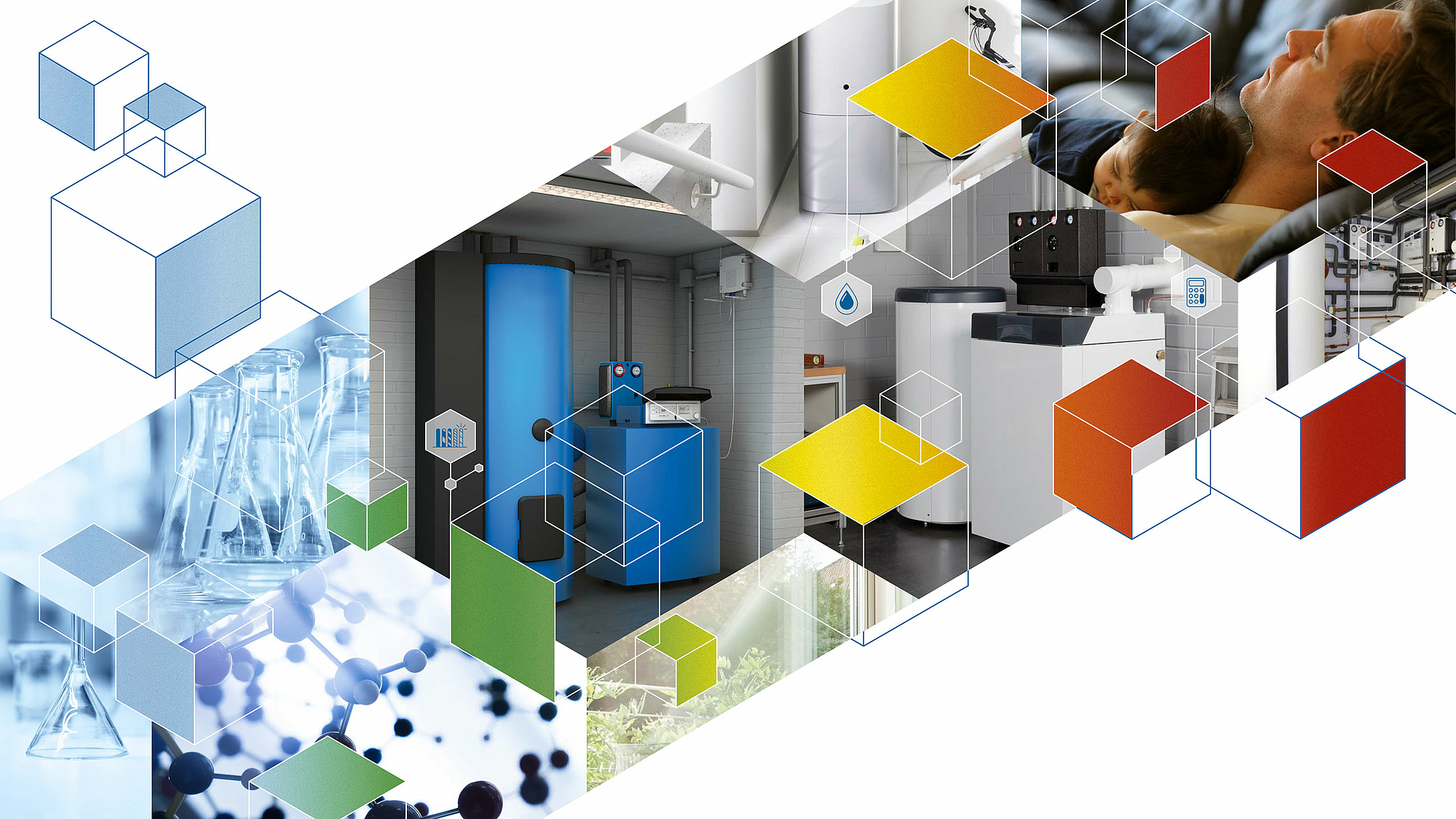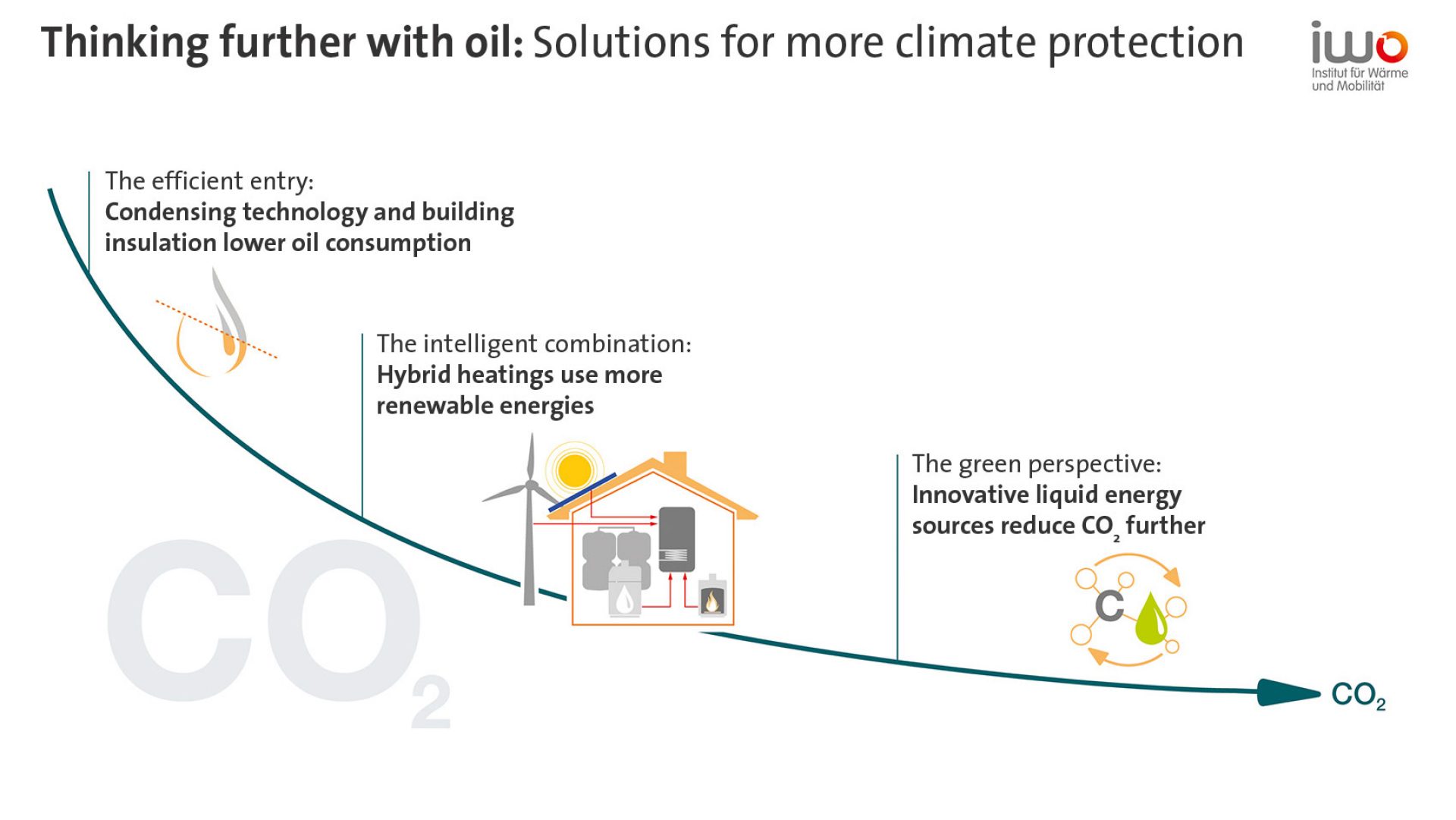About one fourth of the German population (20 million people) uses heating oil today to provide safe and reliable heating. The total of 5.4 million oil heating systems are used primarily in single-family and two-family homes in rural areas. Thanks to efficient condensing technology, which is very often combined with renewable energies, modern oil heating systems already contribute measurably to the reduction of greenhouse gas emissions. This is how heating oil consumption in Germany has been more than halved in the past twenty years. Notwithstanding the fact that the number of oil heaters has remained almost the same during this period.
Affordable entry to the heating revolution
Modernisation with oil condensing technology offers a high cost-benefit ratio. For this reason, they are ideal for transitioning to the heating revolution. They can also make an important contribution to meeting the modernisation requirements of German heating cellars. By expanding into hybrid heating systems, and developing and using low-greenhouse gas-emitting, and even climate-neutral liquid fuels in the future, modern oil heating systems provide potential for long-term use.
Modern fuel for efficient technology
Liquid energy sources can be stored conveniently and transported easily. In order to be able to continue utilising these benefits on a permanent basis, work is being carried out on developing marketable innovative fuels, which can supplement not only kerosene, petrol and diesel but also the heating oil in use up to now. Every litre of heating oil contains at least 10 kWh of energy. This is sufficient, for example, to heat up 200 litres of water from 10 to 55 °C. Based on this high energy content, heating oil is particularly economical. The energy density in liquid fuels is about 20 times higher than in a lithium-ion battery, for example.
Since heating oil ensures constant supply as an energy source that can be stored and is independent of power, oil heating systems are ideal as the basis for hybrid heating systems which integrate renewable energy technology.
New fuels for the future
Keeping the future in mind, work is being carried out on processes with which renewable synthetic fuels can be produced. An important criterion for the development of these new fuels is the drop-in ability of being able to add them to the heating oil in increasing quantities, and to use them in modern condensing technology without any retrofitting or conversions.
Therefore, the research on liquid fuels with reduced greenhouse gas emissions focuses on the production of alternative liquid hydrocarbons from different renewable sources. When selecting the raw materials, any conflict of utilisation with agricultural land or food is consciously avoided. In the process, researchers speak of different "paths": There is the biomass "path", also called "biomass-to-liquid" or simply BtL, which investigates the production of fuels from waste materials and biogenic residues.
Another important pathway is "power-to-liquid", or PtL (eFuels) for short. Here, electricity from renewable sources is used to produce hydrogen, which is then combined with carbon from biomass or CO2, which is extracted from the air, for example, to create a synthetic liquid energy source.


